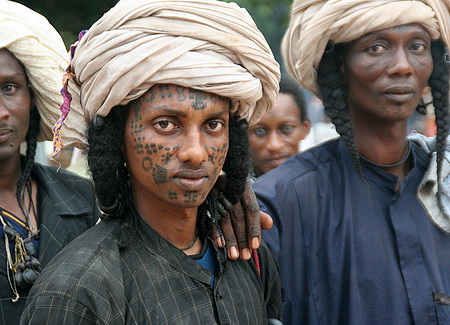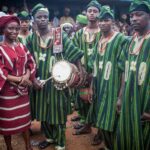A Comprehensive Insight into the Culture, Languages, and Traditions of the Fula People”
The Fula people, Fulani, or Fulbe people are a significant ethnic group in the Sahel and West Africa, with an estimated population between 35 and 45 million worldwide.
They are widely dispersed across countries in West Africa, Central Africa, and even regions near the Red Sea coast.
Geographic Distribution:
- Fula people are spread from the Atlantic coast to the Red Sea, particularly prominent in countries like Mauritania, Ghana, Senegal, Nigeria, and many others.
- They exhibit various settlement patterns, including nomadic, semi-nomadic, and settled groups.
Cultural and Linguistic Aspects:
- The Fulani are known for their Pulaaku code of behavior, emphasizing values like patience, wisdom, and courage.
- Their language is Pulaar or Fulfulde, with different dialects across regions but facing challenges in communication across these variations.
Historical Significance and Origins:
- Original Fulani people had diverse origins and played a crucial role in the spread of Islam through West Africa.
- They have been influential in politics, economics, and religion for over a thousand years.
Traditional Livelihood and Family Life:
- Traditionally nomadic and pastoral, the Fulani have developed diverse social and economic patterns over time.
- The family structure includes extended kin groups with strong ties and practices like polygyny and marrying young for many children.
Marriage and Family:
- Fulani marriages involve several ceremonies, including ‘Sikkii’ and ‘Kabbal’. The bride’s status increases with each male child she bears.
- Fulani food mainly consists of milk products, gruel, heavy porridge, and soups. They also have special meals on specific occasions like fermented milk with corn couscous.
Clothing and Appearance:
- Dress codes and styles vary among the Fulani, with married men and women following Islamic modesty guidelines.
- Fulani can be easily identified by their clothing, colorful robes, headwear, and distinct markings on their faces.
Religious Observance:
- As Muslims, the Fulani pray five times a day, fast during Ramadan, and make a pilgrimage to Mecca. They observe Islamic holidays and beliefs.
- The most important Islamic holidays for the Fulani are after Ramadan and the celebration of the birth of Prophet Muhammad.
Rites of Passage:
- Fulani have ceremonies for naming newborns, circumcision for boys around age seven, and betrothal of girls in their early teens.
- Boys start herding or farming around age twenty, followed by marriage. Middle-aged men are respected as elders.
Education and Recreation:
- Children are educated through Islamic schooling as well as traditional methods such as stories, proverbs, and scoldings. Nomadic families find it more challenging for their children to attend school.
- Recreational activities for Fulani children include dancing and music, while young men participate in traditional sports such as sharro and local games.
Crafts and Leisure:
- Fulani women engage in crafts like engraved gourds, weavings, and knitting. Fulani men are less involved in crafts like pottery, iron-working, and dyeing due to their code of conduct.


